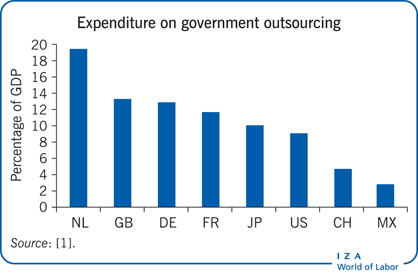Elevator pitch
Outsourcing public provision of services tends to lower labor intensity and increase its efficiency. Costs are usually lower, but quality problems can affect services like health care and residential youth care. Consumer choice has stimulated innovation in education, but the picture is ambiguous for health care. Natural monopolies are unsuitable for outsourcing. Network services (public transportation) may be outsourced through public tenders. While some jobs may be lost in the short run, the long-term effects are generally positive for a wide variety of activities.
Key findings
Pros
The competition effects of privatization make private provision more efficient than public provision.
Outsourcing public services can lower costs (for example, in the UK with urban public transportation) and increase consumer choice (Sweden's school vouchers).
Competition in service provision stimulates innovation, for example in the quality of education and more efficient use of resources.
Cons
Private-sector cost minimization efforts risk worsening the quality of public services, depending on the type of service outsourced.
Some public-sector employees may lose their jobs.
Natural monopolies (water supply, the electricity grid) cannot be privatized without risking a hold-up problem or corruption.
